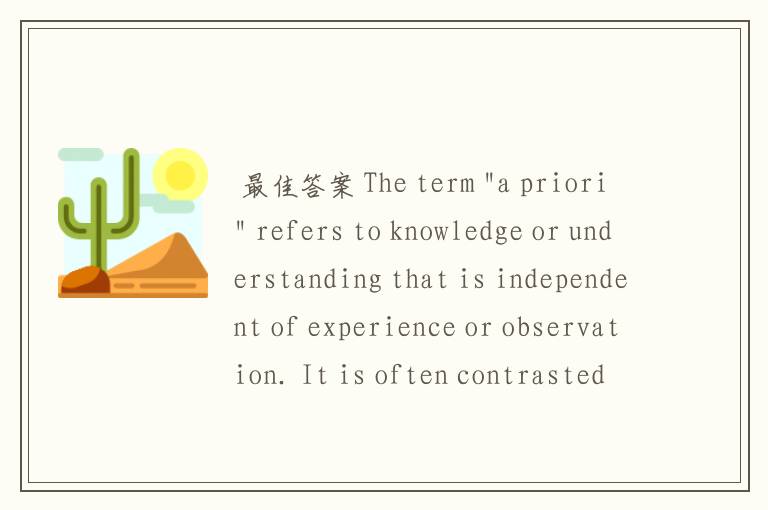- 1、
本文提供多篇内容参考,可直接点击跳转详细解答
(一)

最佳答案The term "a priori" refers to knowledge or understanding that is independent of experience or observation. It is often contrasted with "a posteriori" knowledge, which is based on empirical evidence.In philosophy, the concept of a priori knowledge was popularized by Immanuel Kant, who argued that certain truths are known to be true independently of experience. These truths are not derived from sensory experience, but are instead derived from reason or logic.Examples of a priori knowledge include mathematical truths, such as 2+2=4, and logical truths, such as the law of non-contradiction (which states that a proposition cannot be both true and false at the same time).A priori knowledge is often considered to be necessary and universal, meaning that it is true in all possible worlds. It is also often considered to be certain, in the sense that it is not subject to doubt or revision.However, there is ongoing debate among philosophers about the nature and scope of a priori knowledge. Some argue that all knowledge is ultimately based on experience, while others argue that there are certain truths that can be known independently of experience.
如果你想要了解更多关于莓茶叶有什么好处和副作用的信息和解决方案,不妨点击茶恩阁,我们会为你提供更多有用的内容和知识。
转载请注明来自,本文标题:莓茶叶有什么好处和副作用:请问莓茶有什么功效
本文地址:https://www.entea.com.cn/cwh/4867.html
